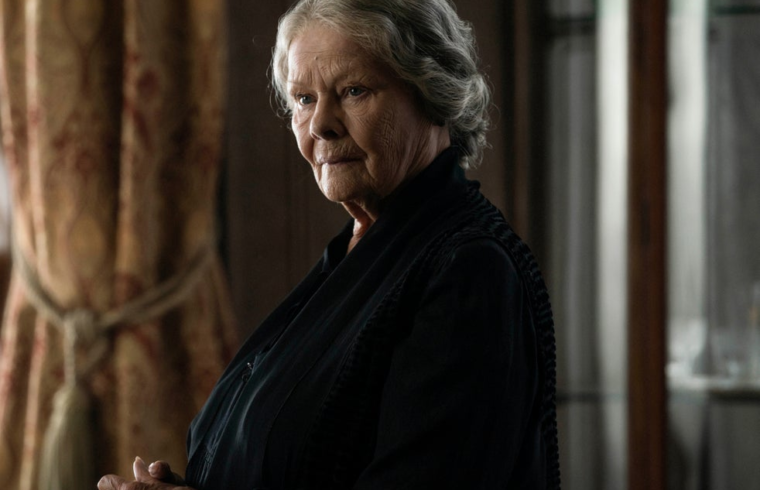Dir: Andy Goddard. Starring: Eddie Izzard, Judi Dench, James D’Arcy, Jim Broadbent. 12A cert, 99 mins
The Augusta Victoria College in East Sussex trained its students in both manners and fascist ideology. Housing several of the daughters and goddaughters of Adolf Hitler’s high command, the girls’ school is the subject of the fascinating if flawed new film Six Minutes to Midnight. It is a genteel and stoic movie, and the kind of period drama where a dying person simply mutters “I’m done,” before kicking the bucket somewhere offscreen. It’s exactly what you’d expect of something enthusiastically paying homage to the elegant, British spy thrillers of old. At times, it plays like a broad invocation of Alfred Hitchcock’s The 39 Steps.
Eddie Izzard, the film’s star and co-writer, learnt of the Augusta Victoria College’s existence several years ago, when she came across an insignia emblazoned with both the British and Nazi flags. Its legacy is a stark reminder that many in the British establishment were not only tolerant of Hitler’s governance, but even considered him a potential ally.
In this fictional story, Izzard plays English teacher Thomas Miller, who is employed at the school shortly after his predecessor mysteriously vanished. He finds the place operating under the courteous but withdrawn Miss Rocholl (Judi Dench), a headmistress with strong German roots. Danger lurks around each corner and soon Thomas finds himself on the run, having been accused of a crime he didn’t commit.
There is an inescapable modern relevance to Six Minutes to Midnight. Izzard and her co-writers, director Andy Goddard and co-star Celyn Jones, wrestle with the darkness within. There’s a tension in each silence, in each glance shared. A secret battle is being waged for the minds of these young girls, whose faith in the world of adults makes them especially vulnerable to indoctrination. Carla Juri is a standout as Ilse Keller, the girls’ teacher. It’s a performance that reminds us how fanaticism often feeds off a kind of emotional desperation; the deeper she falls into the Nazi ideology, the more wild and hysterical she becomes. That’s what makes her so dangerous.

Judie Dench’s Miss Rocholl is never asked to confront her own complicity in the rise of Hitler’s regime
(Sky Cinema Original)
But Six Minutes to Midnight is torn between two desires – to serve as a thoroughly British piece of entertainment, and as an urgent call to remember our past. While the film nods towards the Anglo-German relationship, it stops short of confronting just how widespread antisemitism was among Britons at the time (and throughout the war). Dench’s Miss Rocholl, meanwhile, is never asked to confront her own complicity in the rise of Hitler’s regime. She’s not quite the trope of “the good Nazi”, but still lacks nuance.
Six Minutes to Midnight is far from perfect, but it at least proves that historical entertainment doesn’t automatically have to come with blinkers on.









